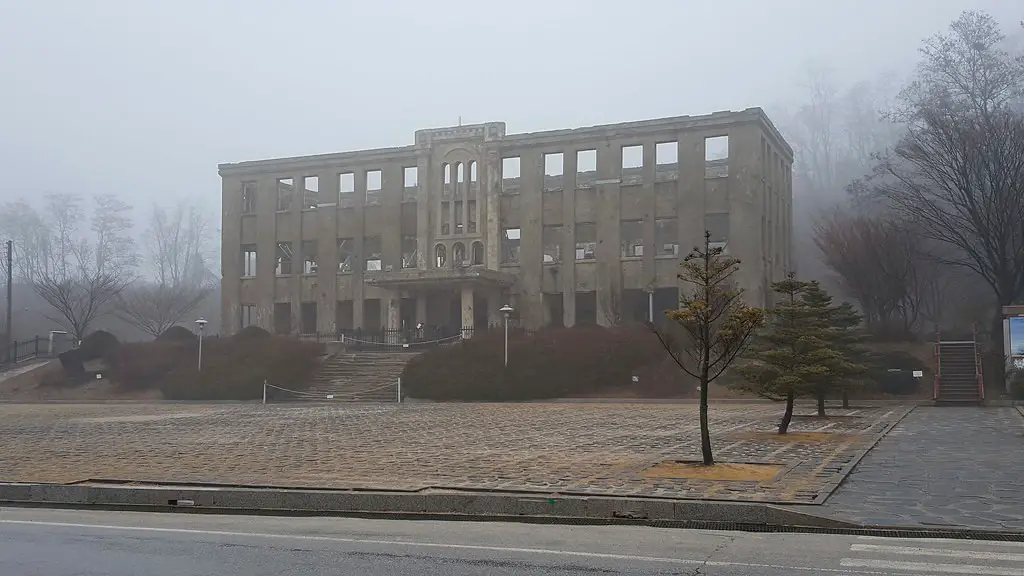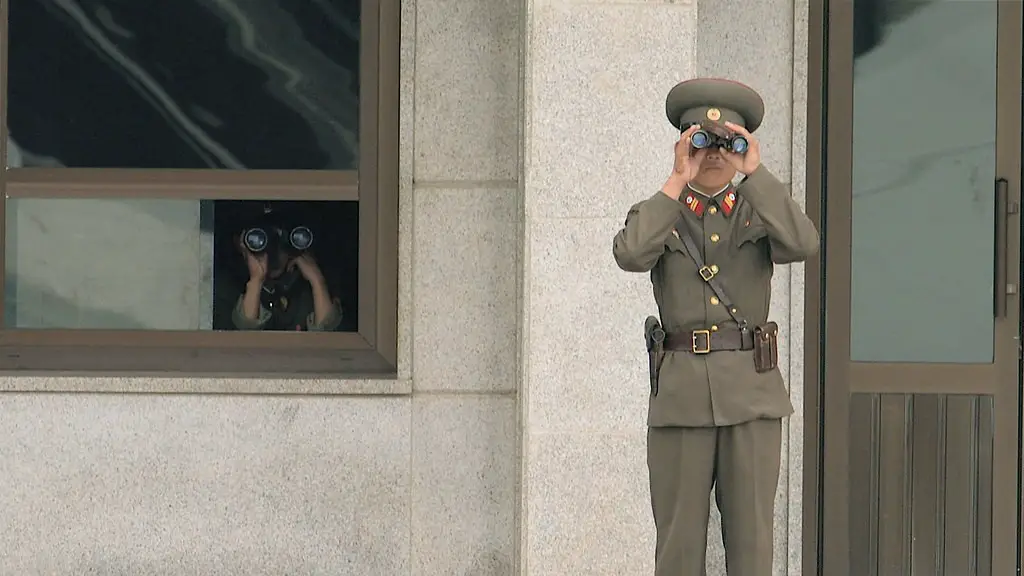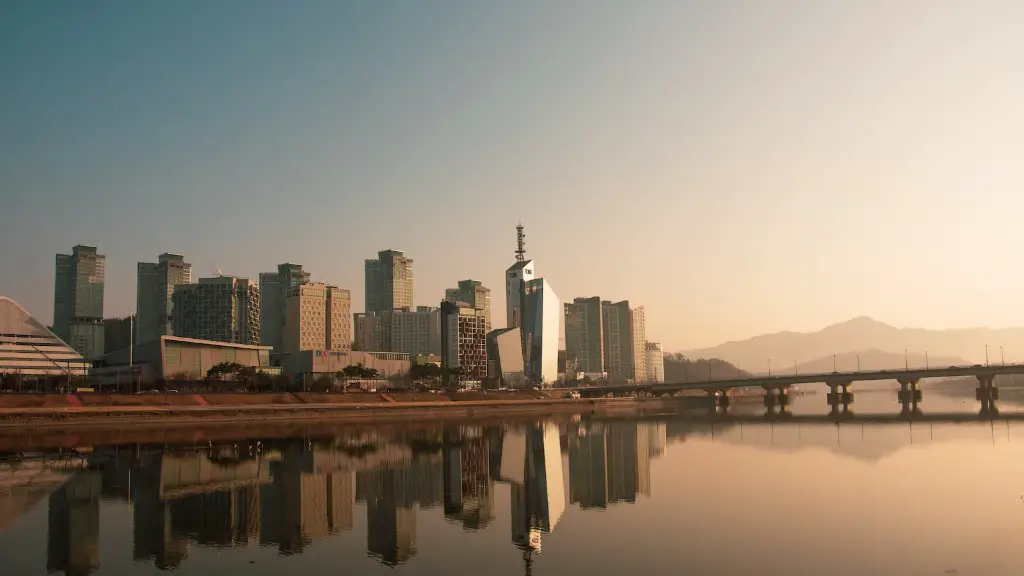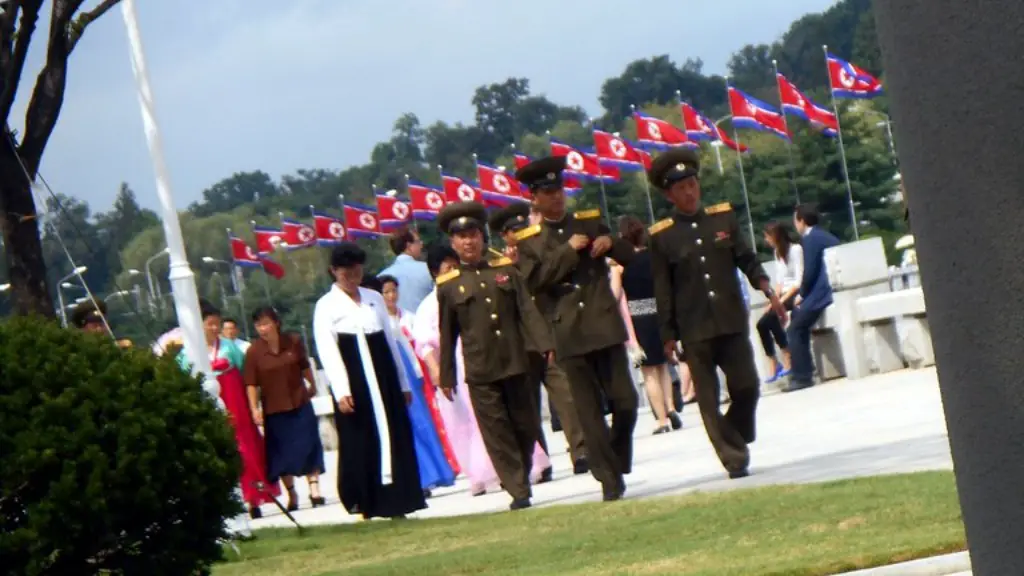The tumultuous relationship between the United States and North Korea has gone through numerous phases. One of the main ways that the U.S. has tried to challenge North Korean behavior has been through the imposition of economic and diplomatic sanctions. The goal of these sanctions is to put pressure on Pyongyang in order to force a political change and to prevent possible nuclear proliferation.
Sanctions have been in place since 2006 after North Korea tested a nuclear device, and the United Nations Security Council has approved various resolutions containing sanctions in order to stop the country’s progress towards nuclear weapons. These sanctions have had an effect on the regime and have caused economic hardship for the entire population of North Korea, impacting the lives of ordinary people.
The results of sanctions have been mixed. They have hampered North Korea’s ability to obtain resources, such as money and technology, to further its development of nuclear weapons, but the country’s leaders have also managed to evade some of the restrictions. For example, North Korea has been able to continue trading with China, a key ally, to some extent.
Sanctions can have a direct impact on North Korea’s economy and the day-to-day lives of its citizens. The sanctions have made it difficult for North Korea to buy food and other essential items, leading to shortages and constraints on the population. This is especially true for those living in rural areas, since the infrastructure in these areas is far less developed and the people there have fewer resources to access.
In addition to the economic effects, the sanctions have also had a chilling effect on civil society in North Korea. They have made it difficult for ordinary citizens to access information and made it harder for them to travel outside the country. This has led to a situation where the regime has much more control over its population, as access to foreign media and perspectives is limited.
The sanctions have been in place for many years, and there is debate over whether they are a success or a failure. Supporters of the sanctions argue that they have been effective in limiting North Korea’s nuclear ambitions, while opponents argue that the sanctions have only pushed the country further away from diplomacy and created an even more isolated population.
The overall impact of these sanctions is difficult to determine, as North Korea is a closed and secretive country. However, the effects that have been seen by outside observers are clear, and it is evident that sanctions have had an effect on both the economy and the environment in North Korea.
The Impact on North Korean Trade
The sanctions have had a significant impact on the trade of North Korea, making it difficult for the country to make deals with anyone outside of its immediate allies. The sanctions have limited the ability of North Korean companies to access the international markets, forcing them to rely on their own resources or on trade deals with countries such as China or Russia.
This has resulted in a severe reduction in the amount of money coming into the country, which in turn has had a negative impact on the economy. The sanctions have also forced North Korea to be more dependent on the support of its allies, as these are the countries that provide them with the resources necessary to survive.
The restrictions on North Korean trade also mean that the country is unable to benefit from the gains being made in international markets. This reduces the number of opportunities for North Korean businesses to expand and create jobs, further harming the economy. The limited ability of the North Korean government to access foreign capital and resources makes it difficult for the country to modernize and compete with other countries in the global economy.
The sanctions have also contributed to the problems of North Korean workers who are employed abroad. They are often unable to send money back to their families in North Korea, and they also face restrictions on their ability to travel back home. This has a direct and indirect impact on the workers as well as their families, adding to the economic hardship in North Korea.
Effects on Human Rights and Access to Information
One of the major effects of the sanctions has been on the human rights of North Koreans. The restrictions have made it difficult for North Korean citizens to access information and fuel the country’s internet censorship. North Korean citizens are also prevented from travelling outside the country, limiting their ability to access information from foreign sources.
North Koreans are also subjected to harsh laws and regulations, and there is little to no freedom of speech or expression. This has created an environment where citizens are prevented from challenging the state or expressing their opinions, further limiting their access to information.
The sanctions have also had an effect on the access to humanitarian aid, as the restrictions on trade make it difficult to obtain the necessary resources. This has resulted in poorer infrastructure, such as roads and power plants, and a lack of access to basic necessities such as food and healthcare.
The sanctions have had a negative impact on North Korean citizens and have been condemned by human rights organizations from around the world. Despite the criticisms, the United States and the United Nations have kept the sanctions in place, arguing that they are necessary in order to bring about political change in North Korea.
U.S. and North Korean Relations
The relationship between the United States and North Korea has been fraught with tension for decades, as the two countries have competing interests. The current situation was further exacerbated by the election of U.S. President Donald Trump, who has taken a more aggressive stance towards North Korea than his predecessors.
This has led to a further deterioration in the relationship, as the U.S. continues to place sanctions on North Korea and the North Korean government continues to pursue its nuclear program. Tensions have also been exacerbated by North Korea’s missile tests and its continued development of nuclear weapons.
The U.S. has attempted to use economic and diplomatic pressure to bring about a change in the behavior of the North Korean government, but it has had little success. North Korea has continued to pursue nuclear weapons and has refused to engage in diplomatic talks. This has led to a stalemate between the two countries, with no clear resolution in sight.
The situation between the two countries has the potential to escalate further if North Korea continues to pursue its nuclear ambitions, and the situation is one that the international community is watching closely.
International Reactions
The international community has largely been critical of the North Korean government and its pursuit of nuclear weapons. Most countries have agreed that the sanctions should remain in place, as they are seen as the most effective way to put pressure on the North Korean government.
However, some countries have taken a more conciliatory approach, urging negotiations between the U.S. and North Korea in order to resolve the conflict. China and Russia have been the most vocal in this regard, as they are the closest allies of North Korea and have an interest in maintaining stability on the Korean peninsula.
There is also resistance to the sanctions from certain countries, such as Turkey, who have argued that the sanctions are too harsh and have led to an increase in poverty and suffering. These countries have urged the U.S. and other countries to show more leniency and look for diplomatic solutions.
Overall, the international community has largely agreed that the sanctions should remain in place, but that there should be room for negotiations in order to resolve the conflict.
Conclusion
Sanctions are an important tool for putting pressure on North Korea and discouraging its pursuit of nuclear weapons. However, the sanctions have had a negative impact on the lives of ordinary North Koreans, and it is uncertain whether they are the best way to bring about change in Pyongyang.
The international community has largely agreed that the sanctions should stay in place in order to deter North Korea’s nuclear ambitions. However, there have also been calls for more leniency in order to give room for diplomatic solutions to resolve the conflict.





